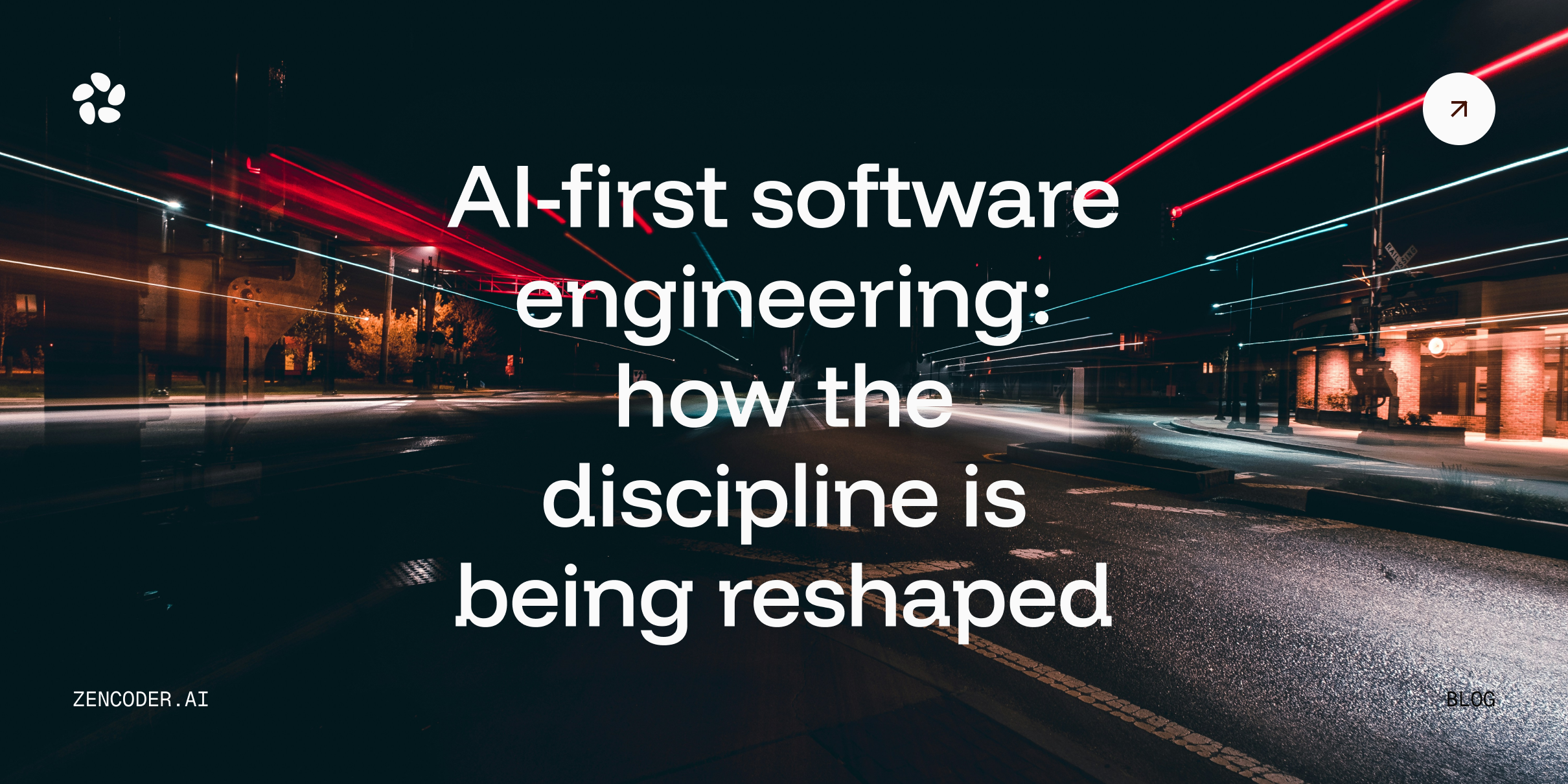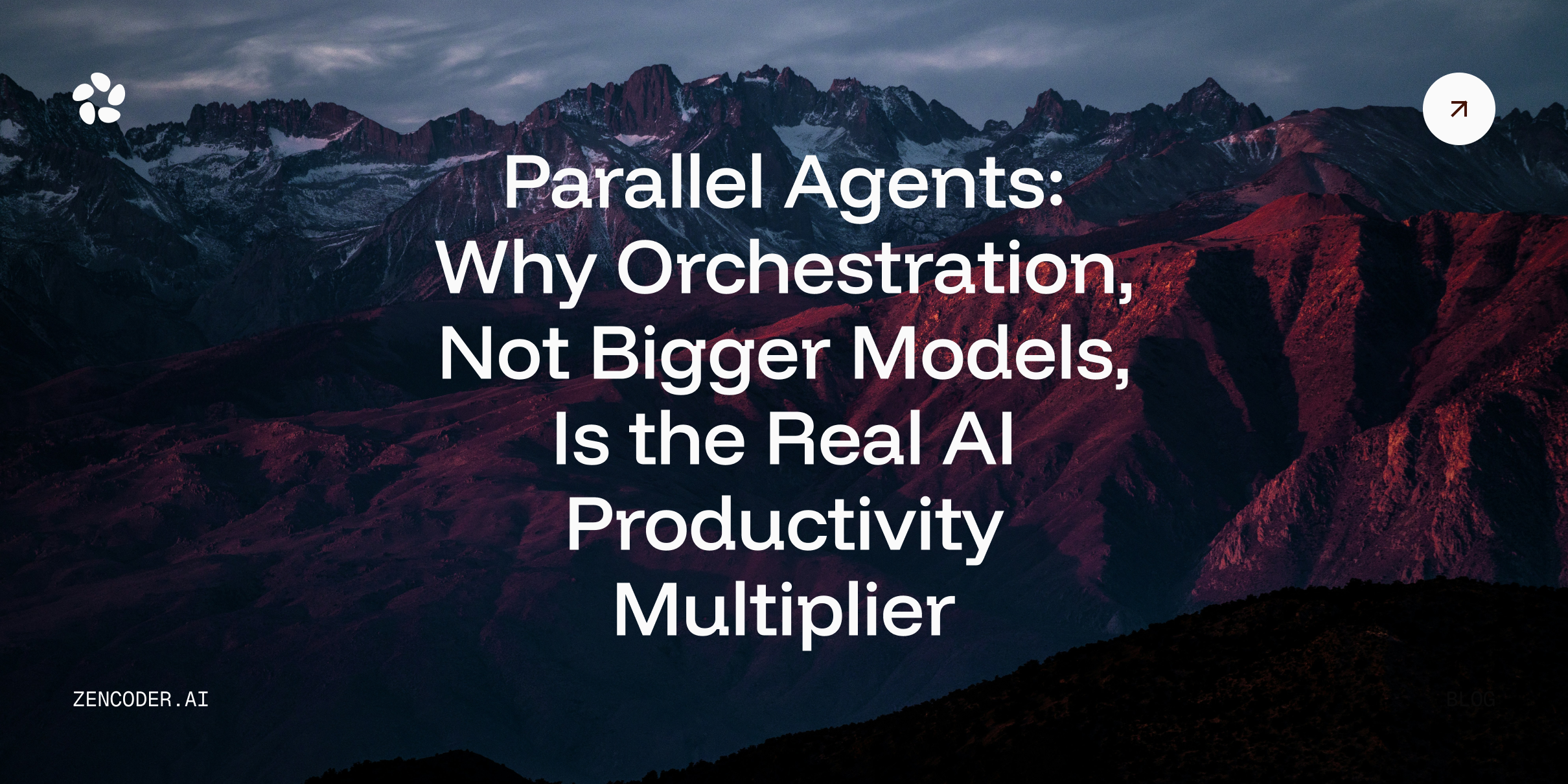The software development landscape is undergoing a period of unprecedented transformation, with artificial intelligence acting as a primary engine of this change. The pace of AI integration is accelerating, moving it from a niche concept to a mainstream toolkit for developers worldwide. AI code generation trends are not merely emerging; they are actively redefining developer workflows, the methodologies behind software construction, and the very trajectory of the tech industry. From the automation of routine coding tasks to providing sophisticated, context-aware assistance, AI is rapidly becoming an indispensable component of the modern software development lifecycle.
Understanding these evolving AI code generation trends is no longer optional but essential for developers and organizations aiming to stay at the forefront of innovation.
The Journey to Intelligent Code Creation: An Accelerated Evolution
The history of software development is a narrative of continuous abstraction and a relentless pursuit of efficiency. We've journeyed from the painstaking era of punch cards and low-level assembly languages, where developers interacted directly with machine architecture, to the introduction of high-level languages like FORTRAN and COBOL in the 1970s, which significantly simplified programming by abstracting machine-specific details.
The 1980s and 90s brought object-oriented programming (OOP), enabling more modular, reusable, and manageable code, alongside visual development environments that further streamlined the process. The dawn of the internet and the open-source movement in the 2000s democratized access to tools and knowledge, fostering global collaboration.
Each step was revolutionary, but the current integration of AI represents a quantum leap. We are now at a frontier characterized by deep AI integration, where tools don't just assist but actively participate in code creation. AI code generators are the vanguard of this movement. They leverage sophisticated machine learning models, trained on billions of lines of code, to understand programming languages' syntax and semantics, generate human-like code, and even assist in debugging and optimization. This evolution is not just about better tools but also about new development paradigms, such as the shift towards more intuitive, AI-assisted workflows, sometimes referred to in discussions like "vibe coding vs. traditional coding."
These systems are rapidly moving beyond generating simple snippets to tackling complex algorithms, suggesting architectural patterns, and even aiding in the creation of entire application modules.
Dnant AI Code Generation Trends to Monitor Closely
The current wave of AI code generation trends is multifaceted and advancing at a breakneck pace. Several key developments are particularly influential in shaping the present and future of software engineering:
- Democratization through Open Source AI: The proliferation and rapidly improving capabilities of open-source AI models, such as Meta's Llama series and others, are fundamentally changing the accessibility of advanced code generation. This democratization lowers barriers to entry for individual developers, startups, and researchers, fostering a more diverse and innovative ecosystem. The open-source community's collaborative nature also means these models benefit from continuous, rapid improvement, often catching up to or even surpassing proprietary counterparts in specific benchmarks. This trend is crucial for preventing vendor lock-in and ensuring widespread access to cutting-edge technology, a topic often touched upon when comparing open-source vs. commercial LLMs.
- Multimodal Generative AI: Beyond Textual Prompts: AI is increasingly capable of understanding and generating code from a variety of input types, not just text. Multimodal models can interpret visual information (like UI mockups or diagrams), audio instructions, or a combination thereof. This allows for richer contextual understanding and opens new avenues for development—for instance, an AI could generate front-end code from a hand-drawn wireframe or translate a spoken description of a function into executable code. This versatility is particularly exciting for tasks like building GUIs in Python or creating interactive data visualizations.
- The Ascendance of Customized and Fine-Tuned AI Models: While general-purpose AI models offer broad utility, the demand for specialized solutions is growing. Customized AI models, fine-tuned on domain-specific datasets (e.g., financial regulations, medical data, specific company coding standards, or even an organization's entire private codebase through techniques like Repo Grokking™), deliver higher accuracy and relevance. This tailoring is vital for industries with unique requirements and for companies looking to enforce consistent coding practices. In this scenario, developers can increasingly expect platforms that facilitate the creation and customization of AI code generators for industry-specific applications.
- Augmented AI: A Symbiotic Human-Machine Partnership: The prevailing narrative is not one of AI replacing human developers but of AI augmenting their abilities. AI tools act as intelligent assistants, providing context-aware code suggestions (often entire logical blocks, not just single lines), automating the generation of documentation like docstrings and README files, identifying potential bugs proactively, and even suggesting refactoring opportunities. This human-AI partnership, central to the vision of many AI coding agents, aims to free developers from repetitive tasks, allowing them to focus on higher-level design, innovation, and complex problem-solving, ultimately redefining developer roles.
- AI Microservices: Architecting for Agility and Scale: The principles of microservices architecture are being enhanced by AI. AI-powered microservices can manage specific, well-defined functionalities within a larger application. This modular approach simplifies development, as teams can focus on smaller, independent services. It also improves maintainability, scalability (services can be scaled independently), and fault isolation. This trend aligns well with modern DevOps practices and the move towards more agile and resilient systems, as seen in discussions around Python microservice architecture with AI code generators.
- NLP and LLM Advancements: Deeper Code Understanding: The continuous evolution of Natural Language Processing (NLP) systems and Large Language Models (LLMs) is the bedrock of more intelligent code generation. These models are becoming increasingly adept at understanding not just the syntax of code but also its semantic meaning and the developer's intent. This leads to more accurate code suggestions, better translation of natural language requirements into code, and more insightful assistance in debugging and optimization. The ability of AI to parse and reason about complex codebases is a significant leap forward.
- Growing Emphasis on AI Ethics, Responsibility, and Security: As AI's role in code generation becomes more pervasive, ethical considerations are paramount. This includes actively working on bias prevention (ensuring AI models don't perpetuate biases present in their training data, which could lead to discriminatory or unfair software), promoting transparency (understanding how AI arrives at its suggestions), and ensuring accountability. Robust data protection measures are crucial, especially when AI interacts with sensitive code or data. The development and adoption of comprehensive guidelines for responsible AI are essential for building trust and ensuring that these powerful tools are used equitably, a concern when considering how AI secures your codebase from vulnerabilities.
The Multifaceted Benefits of Integrating AI into Coding Workflows
The adoption of AI code generation tools is driven by a compelling array of advantages that impact various stages of the software development lifecycle:
- Significant Reduction in Human Error and Enhanced Code Consistency: Human developers, however skilled, are prone to errors, especially with repetitive tasks or under tight deadlines. AI, trained on vast datasets of high-quality code, can generate syntactically correct and often logically sound code with greater consistency. This adherence to best practices and standardized formats across large codebases makes the code more readable, maintainable, and less prone to bugs, directly contributing to prioritizing maintainability and elevating code quality.
- Substantial Gains in Efficiency and Developer Productivity: One of the most immediate benefits is the automation of time-consuming and often mundane coding tasks. This includes writing boilerplate code, generating standard functions, implementing common algorithms, or even automating Python script creation. By offloading these tasks, AI allows developers to reclaim valuable time and mental energy, enabling them to focus on more complex, creative, and strategic aspects of their projects. Many developers report significant productivity boosts, allowing for faster iteration cycles and quicker time-to-market, a key reason to explore the best AI coding assistants.
- Automated and Improved Documentation: Comprehensive documentation is vital for software maintainability and team collaboration, yet it's often neglected. Many AI code generation tools can automatically generate docstrings, comments, and even API references based on the code itself. This not only saves developer time but also ensures that documentation is more consistent and up-to-date.
- Continuous Learning and Adaptation from Vast Codebases: AI models are not static; they learn and improve over time. By being trained on enormous and diverse code repositories, they can identify common error patterns, anti-patterns, and optimal solutions for various problems. This continuous learning process means that the quality and relevance of AI-generated code are constantly improving.
Navigating the Security Landscape of AI-Generated Code
While AI offers numerous benefits, the security of AI-generated code is a critical consideration that cannot be overlooked. The adage "garbage in, garbage out" applies; if an AI model is trained on codebases containing vulnerabilities, it may inadvertently reproduce or even introduce new security flaws. Studies, like the one from the Technical University of Cluj-Napoca mentioned in one of the source articles, found that a significant percentage of AI-generated programs could contain vulnerabilities (e.g., related to Common Weakness Enumeration - CWE).
Therefore, human oversight remains indispensable. Developers must meticulously review and test AI-generated code, employing static and dynamic analysis tools, and conduct thorough security audits. Integrating AI code review tools can assist in this process, but they supplement, not replace, human expertise. Ensuring AI models are trained on secure, well-vetted codebases and incorporating vulnerability detection features directly into AI code generators are active areas of development aimed at mitigating these risks.
The Evolving Role of Programmers: Augmentation, Not Obsolescence
The rise of powerful AI code generators has understandably sparked discussions about the future role of human programmers. However, the prevailing view within the industry is that AI will augment human capabilities rather than render programmers obsolete. AI excels at handling repetitive, well-defined tasks, but software development encompasses much more: understanding nuanced user requirements, complex system design, creative problem-solving, ethical decision-making, and adapting to entirely new paradigms.
AI tools are increasingly seen as sophisticated "pair programmers" or intelligent assistants. They can accelerate development, reduce drudgery, and provide valuable insights, but the strategic direction, innovation, and critical thinking remain firmly in the human domain. The future likely involves developers leveraging various types of AI agents to enhance their workflows, allowing them to operate at a higher level of abstraction and tackle more ambitious projects.
Strategies for Enhancing the Quality and Utility of AI-Generated Code
To fully harness the potential of AI code generation trends and ensure high-quality output, several best practices are essential:
- Prioritize High-Quality and Diverse Training Data: The performance of any AI model is fundamentally linked to the data it's trained on. For code generation, this means using large, diverse, and well-curated datasets of high-quality, secure, and well-documented code.
- Implement Robust Feedback Loops: Continuous improvement relies on feedback. Developers using AI tools should have mechanisms to provide feedback on the generated code—highlighting errors, suggesting improvements, or confirming good suggestions. This feedback is invaluable for retraining and fine-tuning the AI models.
- Maintain Rigorous Code Review and Testing Protocols: AI-generated code should never be accepted blindly. It must undergo the same, if not more stringent, code review processes as human-written code. Comprehensive testing, including unit tests (perhaps with AI assistance for automated test case creation), integration tests, end-to-end tests (like those Zencoder aims to improve with Zentester), and security assessments, is crucial.
- Foster a Collaborative Approach with AI Tools: Developers achieve the best results when they treat AI code generators as collaborative partners rather than infallible oracles. Understanding the strengths and limitations of the specific AI tool being used allows developers to guide it effectively, combine its output with their expertise, and ultimately produce superior software. Platforms like Zencoder, with its emphasis on Repo Grokking™ technology, aim to enhance this collaboration by providing highly contextual and reliable code suggestions.
The Road Ahead: Future Trajectories in AI Code Generation
The current AI code generation trends are just the beginning. The field is poised for even more significant advancements:
- Deeper and More Seamless IDE Integration: Expect AI tools to become even more tightly woven into Integrated Development Environments (IDEs), offering real-time, proactive suggestions, intelligent error detection, and automated code improvements directly within the developer's primary workspace. The experience will likely become more fluid and less obtrusive, as discussed in the article about integrating AI code generators with VSCode.
- Enhanced Natural Language Understanding for Complex Requirements: AI's ability to understand and translate complex project requirements expressed in natural language into functional code will continue to improve. This could dramatically streamline the initial phases of development and bridge the gap between stakeholders and developers.
- Greater Customization, Personalization, and Adaptability: Future AI code generators will likely offer even more sophisticated customization options, allowing them to adapt to individual developer preferences, team-specific coding styles, and evolving project needs. They may learn a developer's habits over time to provide increasingly personalized assistance.
- AI's Expanding Role in the Full Software Lifecycle: Beyond initial code creation, AI will play a more significant role in software testing (automated test generation, bug prediction), maintenance (identifying areas needing updates, suggesting refactoring), and even in managing technical debt with AI solutions. In this context, the use of AI-driven refactoring tools will likely become more common.
- The Rise of AI-Directed Development: Concepts like "vibe coding," where developers guide AI at a higher level of abstraction to build software, as explored in articles like "What is Vibe Coding? Software Engineering Guide for 2025," point towards a future where the nature of programming itself might evolve.
Staying Abreast in a Rapidly Evolving Domain
Given the dynamic nature of AI code generation trends, continuous learning and adaptation are crucial for developers and organizations. Actively engaging with industry resources is key. This includes:
- Following reputable technology blogs and news sources (such as the Zencoder blog, which frequently covers these topics).
- Joining online AI and developer communities (e.g., on platforms like Discord, Reddit, or specialized forums).
- Attending industry conferences, webinars, and workshops.
- Exploring open-source AI projects on platforms like GitHub.
- Hands-on experimentation with new AI coding tools and platforms to understand their capabilities and limitations firsthand. For instance, trying out various free AI tools for developers can provide practical insights.
Conclusion
AI code generation is not a fleeting fad but a fundamental shift in how software is created and maintained. The ongoing AI code generation trends clearly indicate a future where AI tools are integral to nearly every aspect of development. By enhancing efficiency, improving code quality, reducing mundane labor, and empowering developers to tackle more complex and creative challenges, AI is paving the way for a new era of innovation and productivity. The journey ahead is not about AI replacing human ingenuity but about fostering a powerful, collaborative synergy that will continue to push the boundaries of what's possible in the vast and exciting world of software development.


_%20The%20Engineering%20Method%20AI%20Needed%20(1).webp)
